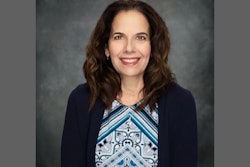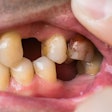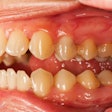In addition to financial barriers, personal factors, such as trouble participating in social activities, may independently contribute to delays in seeking dental care. This study was recently published in BMC Oral Health.
Also, income, smoking habits, gender, and education level may be key factors influencing delays in dental care, the authors wrote.
"Cost-related delayed oral health care and postponed dental visits are still public health problems that should be addressed," wrote the authors, led by McKing I. Amedari of the University of Mississippi (BMC Oral Health, April 7, 2025, Vol. 25, 501).
This cross-sectional study analyzed data from 17,513 adults using the 2022 U.S. National Health Interview Survey. Cost-related delayed oral healthcare was defined as postponing dental care due to financial barriers, while postponed dental visits referred to having no dental visit in the past 12 months, they wrote.
Predictor variables included education; smoking status; gender; employment status; family income as a percentage of the federal poverty level (FPL); and health service deficit (HSD) factors, such as lacking health insurance, no usual primary care provider, and no medical exam in the past 12 months. Additional need-based factors included difficulty with social engagement and the presence of one or more comorbidities.
The prevalence of cost-related delayed oral healthcare was 20.2%, while 36.4% of participants reported postponing dental visits. Predictors of cost-related delays included predisposing factors, such as smoking (odds ratio [OR] = 1.47, 95% confidence interval [CI]: 1.33 to 1.62), enabling factors, like lack of health insurance (OR = 2.96, 95% CI: 2.56 to 3.42), and need factors, such as difficulty engaging in social activities (OR = 1.59, 95% CI: 1.34 to 1.88), they wrote.
Enabling factors were the strongest predictors of postponed dental visits. The likelihood of postponing care decreased with higher income levels (> 400% FPL vs. < 100% FPL [OR = 0.5, 95% CI: 0.43 to 0.58]) and increased for individuals without health insurance (OR = 1.68), those without a usual primary care provider (OR = 1.64), those who hadn't had a medical exam in over 12 months (OR = 2.3), or those who delayed medical care due to cost (OR = 1.57).
The study had limitations -- it did not consider factors like personal attitudes, cultural norms, motivation, or intention to seek dental care, the authors added.
"The strong association between health service deficits and postponed dental visits is a clear opportunity for advocating medical and dental integration, ensuring the delivery of comprehensive and patient-centered care," they concluded.




















